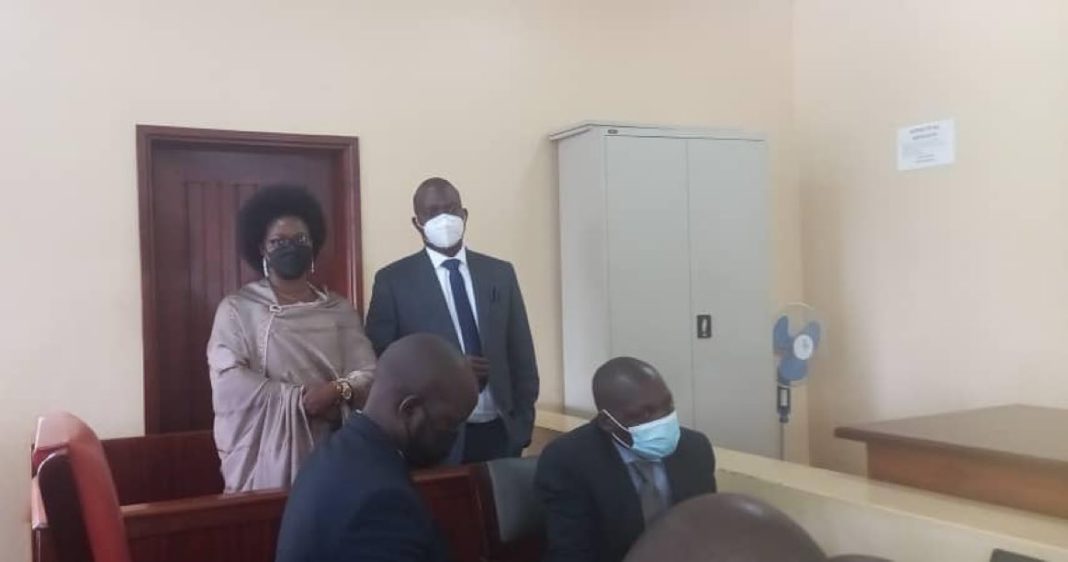The founder of House of Prayer Ministries and proprietor of Salt Media, Pastor Aloysious Bugingo and his new fianceé Suzan Makula Nantaba have arrived at Entebbe Magistrates Court for hearing of the matter in which they are accused of contracting Marriage by Customary Law.
The two have been accompanied by Frank Gashumba who is also among the individuals who attended the introduction ceremony which was held at Kawuku, Katabi Town Council.
The two were sued by Private Prosecutor Male Mabirizi, who says Bugingo and Teddy Naluswa are legally married. On 20th December 2003 Bugingo got married to Teddy Naluswa Bugingo vide certificate number 376 through Church marriage at Victory Christian Center, Ndeeba after which the marriage was solemnized and it still subsists.
In 2019, Bugingo filed a divorce case at Kajjansi Chief Magistrates’ Court against his wife and sought for dissolution of their marriage. He accused Naluswa of being disrespectful to him. In her response to the divorce case, Naluswa maintains that she has never been disrespectful to Bugingo since they walked down the aisle many years ago.
And on 7th December 2021, Bugingo and Makula conducted a customary marriage at Kawuku, Katabi town council, Wakiso district contrary to Marriage Act.
According to the Act, Section 42 states that Any person who, being unmarried, goes through the ceremony of marriage with a person whom he or she knows to be married to another person, commits an offense and is liable on conviction to imprisonment for a period not exceeding five years.
Section 50 states that “Any person who, having contracted marriage under this Act or any modification or reenactment of this Act, during the continuance of that marriage contracts a marriage in accordance with customary law, commits an offense and is liable on conviction to imprisonment for a period not exceeding five years.”








